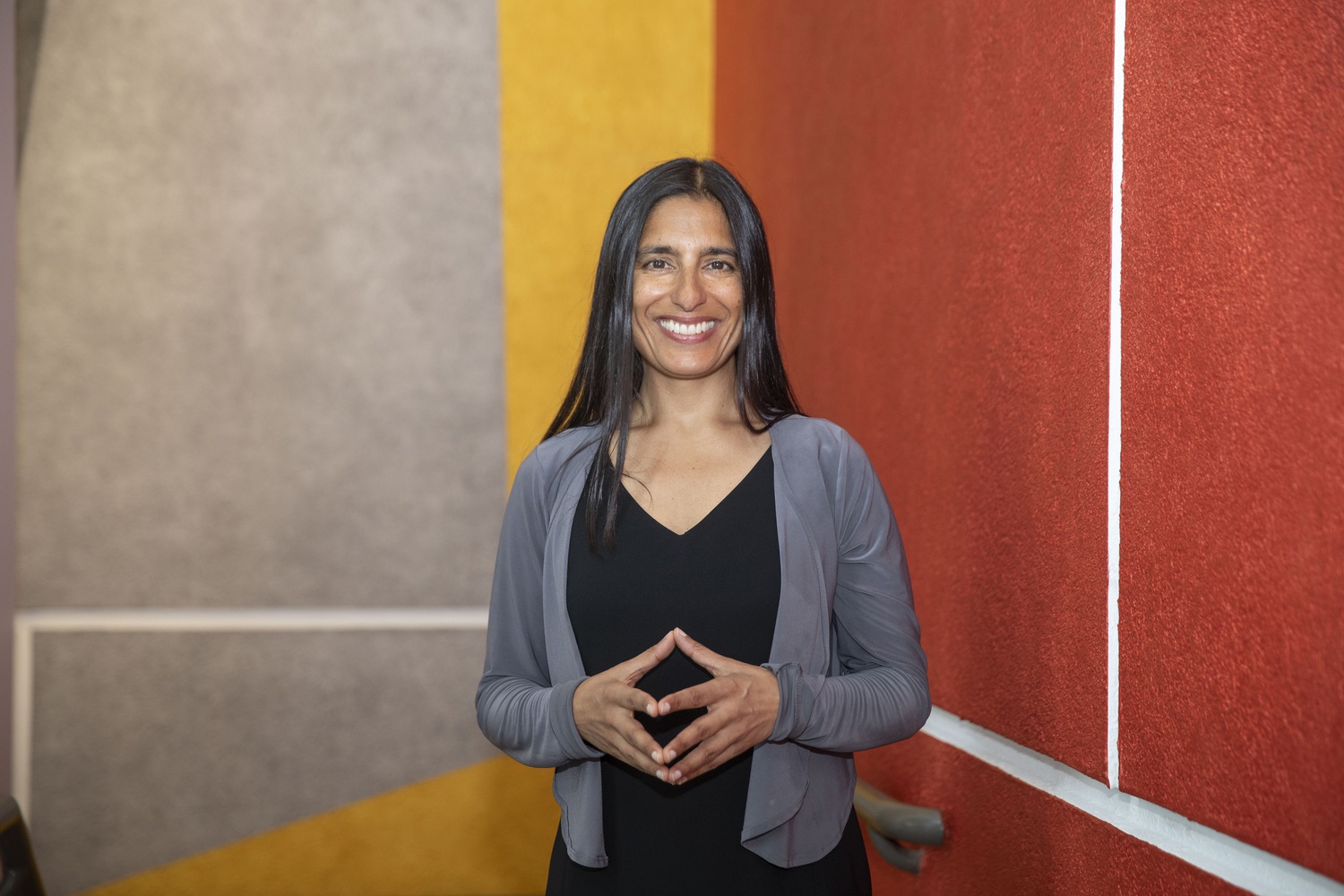
News
Summers Will Not Finish Semester of Teaching as Harvard Investigates Epstein Ties

News
Harvard College Students Report Favoring Divestment from Israel in HUA Survey

News
‘He Should Resign’: Harvard Undergrads Take Hard Line Against Summers Over Epstein Scandal

News
Harvard To Launch New Investigation Into Epstein’s Ties to Summers, Other University Affiliates

News
Harvard Students To Vote on Divestment From Israel in Inaugural HUA Election Survey
New Harvard CFO Ritu Kalra Says University Has ‘Repair Work To Do’ Amid Controversy Over Israel-Hamas Response

Harvard Chief Financial Officer Ritu Kalra acknowledged that officials tasked with fundraising have their work cut out for them as they rebuild relationships with donors dismayed by the controversy enveloping the University over its messaging on the Israel-Hamas war.
Kalra said in an interview with The Crimson on Wednesday that the University has “a lot of repair work to do.”
Harvard University President Claudine Gay has faced sustained criticism for more than two months after the University’s initial statement on the fighting in Israel and Gaza did not directly condemn Hamas and failed to address a controversial pro-Palestine statement signed by more than 30 student groups.
Some of Harvard’s most generous donors have emerged as the fiercest critics of Gay’s response to the Israel-Hamas war, with several prominent donors ending their relationships with the University.
The Wexner Foundation — chaired by billionaire Leslie H. Wexner — ended a programmatic and financial relationship with the Harvard Kennedy School. Idan Ofer, an Israeli billionaire, resigned from the Kennedy School’s executive board in protest of the University’s initial slow response to Hamas’ Oct. 7 attack on Israel.
The situation has also worried Harvard gift officers, who are tasked with fundraising across the University. Some gift officers have privately expressed concerns that some longtime donors will cease their donations to Harvard over the controversy.
“We’re not changing any of our planning, but we are deeply engaged with our alumni base, with our donors, with our entire community,” Kalra said.
“We’ll see how things play out,” she added. “We will continue to engage with our donors to help the University move forward.”
Despite the ongoing controversy, Kalra said she is “cautiously optimistic” about Harvard’s fiscal year 2024 financial performance but noted that rising expenses and revenue pressure are contributing to challenges faced by the University.
The value of Harvard’s endowment fell for the second consecutive year in fiscal year 2023, with the endowment’s market value dropping to $50.7 billion, down from $50.9 billion at the end of the previous fiscal year.
Against the backdrop of high inflation and a return to pre-pandemic activity in the United States, Kalra said that the University has experienced “an elevated expense base” relative to their expectations and “pressures on the expense side” from new hiring.
Harvard’s expenses are growing faster than its revenue, marking a significant challenge for the University, according to Kalra.
“Our expense base is growing faster than our revenue base for good reason, but we need to — at some point — curb that,” Kalra said. “You can’t continue to have expenses growing to support all the existing activity and add new activity to it.”
Kalra, however, said the financial pressures on the revenue side were not specific to Harvard but applicable to higher education more broadly.
“That includes eroding public trust in higher education, which leads to limited growth in our traditional revenue streams,” she said. “We’ve diversified our revenues and the volatility in each of those components.”
While Harvard has historically not been close to the top of the Ivy League in terms of endowment performance over the past decade, Kalra said investment and operational changes made in recent years by N.P. “Narv” Narvekar — the chief executive officer of the Harvard Management Company — “will pay real dividends over the long term.”
“Bringing Narv Narvekar in six years ago now was really, really impactful and meaningful to the University,” Kalra said. “It takes a long time to make change and to see the benefits of that change.”
During the interview, Kalra also discussed her experience assuming the post of Harvard CFO and vice president for finance. She took over from Thomas J. Hollister on July 1 and said she had a “relatively smooth” transition, with the main difficulty being the time needed to understand the University’s operations.
“You want to dive into everything and get to know all the different areas of the University and its activities, and that just takes time to do,” Kalra said. “I have to remind myself to be patient with myself because whenever you step into a new role, it takes time to really learn it — to really understand it.”
—Staff writer Krishi Kishore can be reached at krishi.kishore@thecrimson.com. Follow him on X @tweetykrishi.
Want to keep up with breaking news? Subscribe to our email newsletter.
